 Your new post is loading...
 Your new post is loading...
[Google translated from local Donga website] Apple invests 4 trillion won in Kia… Promotion of a “Apple Car” cooperation agreement this month Prospects of building exclusive production facilities through investment Kia's Georgia plant targets production in 2024 100,000 units per year… Up to 400,000 units “Hyundai Glovis will take on a significant role” Hyundai Motor Group's “Apple Car (tentative name)” cooperation theory is heating up the industry with the start of the new year. Amidst various rumors and news coming out steadily, a puzzle about the cooperation of Apple Cars was put together, centering on the group's major affiliate, Kia. As previously known, Kia takes over the Apple Car project and production takes place at the Kia Georgia plant in the United States. Both Kia and Apple are refraining from expressing their official positions, but it was confirmed that they have entered the contract process. Apple car development cooperation, which was full of rumors and speculation, is making progress. Overall, Kia and Apple plan to sign a formal contract worth 4 trillion won for Apple car production this month. Practical coordination for a formal contract has been underway since last month, and a specific contract schedule has been set. Initially, the contract date was set at the beginning of February, but it was delayed once and the schedule was changed to February 17. However, it is reported that the contract schedule on February 17 may change depending on the internal circumstances of each company. In particular, on the day of the contract, Hyundai Motor Group Chairman Eui-sun Eui-seon said that the plan was scheduled to attend the contract ceremony. Recently, the news that Chairman Chung met a senior Apple official on a business trip to Singapore last month. The facts have not been confirmed. The contract is expected to contain specific details related to the production of Apple cars. Apple is planning to invest 4 trillion won in Kia. With the aim of launching in 2024, the number of Apple cars produced by Kia is initially around 100,000 units per year, and can be expanded to a maximum of 400,000 units. The 4 trillion won that Apple invests in Kia is expected to be used for building exclusive facilities for Apple car production and vehicle development. This large-scale initial investment is also a way Apple often uses in the process of driving major product production. When promoting the production of existing flagship products such as iPhone and iPad, Apple has invested trillions in LG Display (LGD) and supplied OLED panels produced in dedicated facilities. Likewise, Kia, which has attracted investment from Apple, is expected to build a dedicated line for Apple's electric vehicle production. With Kia leading vehicle production in the Apple Car Project, attention is also being drawn to the role of Hyundai Glovis. An industry official said, "Glovis, which has several subsidiaries in the US, will play a significant role in the Apple Car business." Glovis operates 4 subsidiaries and 4 offices in the United States, including Glovis America and Georgia subsidiaries, Alabama subsidiaries, and GET subsidiary of local land transportation. In addition to logistics, which is its flagship business, the possibility of promoting electric vehicle-related businesses is predicting. According to the industry, from Apple's point of view, Hyundai Motor Group is the best partner for entering the electric vehicle market. It is analyzed that it is because it has its own electric vehicle platform (E-GMP), has a production facility in the United States, and has both the ability and requirements to actually produce new cars in accordance with the planned period (2024). The vision of the future proposed by Hyundai Motor Group, such as electric cars, hydrogen cars, and flying cars, may have been an attractive factor for Apple seeking innovation.
Volvo said on Wednesday it will use cameras installed inside its vehicles to monitor driver behavior and intervene if the driver appears to be drunk or distracted. It’s a risky move by an automaker, even one with a reputation for safety like Volvo, which could raise concerns among privacy advocates.
How widely and how quickly will autonomous cars be accepted? As hard as it might be for an urbanite to imagine, many people love their cars. And if early autonomous vehicles cause a few well-publicized accidents, fear of the unknown could slow the trend, even to a halt.
Is owning a car factory an advantage or a disadvantage? In the minds of many from Silicon Valley, "Detroit" is a euphemism for inept. They believe the most important part of a car is its software, and they're probably right. But isn’t a century’s worth of expertise worth something? And don’t get carried away about Tesla: Last year it delivered 50,580 cars, approximately one-quarter of one percent of Detroit's output.
Is ride-sharing a commodity product? In Brooklyn, I can use a car-hailing app to get Uber, Lyft, Juno, or a taxi. I don’t see any significant difference between any of the services, each of which arrive quickly, charge similar fares, and offer clean cars and knowledgeable drivers. Selling a commodity tends to be a pretty awful business.
How long can ride-sharing companies like Uber and Lyft take a loss on many of the rides they provide, in their race to garner riders and drivers? "There’s never been a market as subsidized as this," one venture capitalist told me. "We’ll only know the winners and losers after that settles down."
Will governmental regulations slow or speed this transition? The environmental benefits of electric vehicles and fewer cars on the road are clear. Yet cities like New York, Austin, Berlin, and Paris have at different times threatened to strangle car-sharing with regulations. Look at the airline business: governments like regulating travel, for better or for worse.
What kind of "driver" or "passenger" insurance will be required? The average American driver now pays a bit less than $1000 per year for auto insurance. But who is responsible when driverless cars collide?
Will we continue to personally own cars, or will we instead have monthly subscriptions to companies that will provide all the rides we need? Subscription services seem likely, but if my current subscriptions—to companies like Time Warner Cable and Verizon—are any model, quality suffers and prices creep up.
Why is it so difficult to design a driver-friendly dashboard? Mapping services and accurate engine diagnostics are welcome additions to the information a driver can see, but more data has resulted in cluttered screens using interactive controls designed for phones or laptops. Steve Jobs understood that the user interface was the most important part of any consumer technology. Can Apple solve this problem?
Are Uber and Lyft drivers employees or contractors? This is an issue of short-term importance, but is caught up in a broader societal concern: How to define those who participate in the so-called ‘gig economy.’
Who has the most important leverage? The company that designs a car's software? The manufacturer? Or is it Uber, whose app is used by so many consumers? As with any nascent transition, it's hard to know what will emerge as the most important bottleneck.
Can any ride-sharing company become a truly international brand, or will local services trump those ambitions? Uber is losing billions of dollars trying to snare a leading market share in Asian countries. No one know exactly how much resistance it will face from governments that prefer local providers.
How strong are the network effects that Uber gains by being such a well-funded first mover? Benchmark VC Bill Gurley likes to point to this tweet as a key reason that Uber will continue to thrive. But if car-sharing has as much subsidization and government interference as the airline industry, will those network effects hold true?
Two years ago, a trio of researchers were preparing to present the findings of their investigation into the security of car immobilisers used by luxury cars. The way these devices are supposed to work is like this: You sit in your car, and push the “Start” button. The engine should remain immobilised, and refuse to start, unless a cryptographic algorithm on the key’s RFID transponder correctly verifies the identity of the key being used to start the motor. If you don’t have the right key on you, the car should refuse to start. The car thief, hopefully, walks away in frustration. The researchers, a lecturer in Computer Science at the University of Birmingham in the UK, and two colleagues from the Radboud University in the Netherlands, found a problem with the Megamos Crypto system used on some cars, and believed that the public had a right to know about the security weakeness. The research paper planned for presentation at the USENIX Security Symposium in August 2013, would describe both the algorithm and the weakness within it. However, their hopes of making the flaws public were dashed by the UK’s High Court of Justice, who ordered that the talk should not be presented and that key parts of their research must not be published. The court’s concern was that the research by Flavio Garcia, Baris Ege and Roel Verdult would mean “that car crime would be facilitated”, as criminals could exploit the security weakness to steal expensive cars such as Audis, Bentleys, Porsches, and Lamborghinis. And who had asked the court to silence the researchers? Car manufacturing giant Volkswagen and French defence group Thales. Now, in August 2015, the researchers’ paper is finally being presented at the USENIX security conference in Washington DC, two years later than originally planned, detailing how the Megamos Crypto system – an RFID transponder that uses a Thales-developed algorithm to verify the identity of the ignition key being used to start their motors – can be subverted.
Via Frederic GOUTH, Thierry Evangelista
|
Tesla has remotely disabled driver assistance features on a used Model S after it was sold to a customer, Jalopnik reports. The company now claims that the owner of the car, who purchased it from a third-party dealer — a dealer who bought it at an auction held by Tesla itself — "did not pay" for the features and therefore is not eligible to use them.
Intel inked a deal to acquire Mobileye, which the chipmaker’s chief Brian Krzanich said enables it to “accelerate the future of autonomous driving with improved performance in a cloud-to-car solution at a lower cost for automakers”. Mobileye offers technology covering computer vision and machine learning, data analysis, localisation and mapping for advanced driver assistance systems and autonomous driving. The deal is said to fit with Intel’s strategy to “invest in data-intensive market opportunities that build on the company’s strengths in computing and connectivity from the cloud, through the network, to the device”. A combined Intel and Mobileye automated driving unit will be based in Israel and headed by Amnon Shashua, co-founder, chairman and CTO of the acquired company. This, Intel said, “will support both companies’ existing production programmes and build upon relationships with car makers, suppliers and semiconductor partners to develop advanced driving assist, highly-autonomous and fully autonomous driving programmes”.
Cars are no longer what they seem to be. On-board computers and their algorithms have invaded all organs, making cars better, but also more susceptible to hacks and invasions of privacy. Having driven Route 85 between Cupertino and Mountain View a few thousand times, I’m familiar with every rift and gap in the concrete, every subtle camber shift as I follow an habitual, gradual arc through curves and lane changes. Some early Chevrolet episodes aside, I’m behind the wheel of a European vehicle, silent, good lungs, surefooted, precise, the kind of car that translates the driver’s steering motion into a smooth trajectory, no ifs or buts, no need for correction as the suspension takes its time to settle. After 31 years of driving this pleasant road, the feeling doesn’t get old. A few weeks ago, I drove the familiar route in a new vehicle freshly delivered from Sindelfingen. Something is wrong: The first curve line is “dirty”, it lacks Germanic rigor. At the next curve the steering wheel argues with me, politely but clearly demanding a different trajectory. When I get back home I look around the dashboard and notice two red indicators that had been hidden by the steering wheel while I was driving. The walkthrough tech at the dealership had set the vessel to autopilot. In retrospect, I should have seen the argumentative steering coming: I had ordered the autopilot and other geeky features that were unknown when I bought my previous chariot just five years ago. On the road, the autopilot had interpreted my steering ‘optimizations’ as daydreaming lane drift and had stepped in to keep me in line. I disconnect the autopilot and go for a drive; the familiar pleasant feeling returns. In a 1957 essay about the Citroën DS (pronounced “Déesse”, goddess) Roland Barthes hailed the modern car as… “…the exact equivalent of the great Gothic cathedrals: I mean the supreme creation of an era, conceived with passion by unknown artists…it excites interest less by its substance than by the junction of its components. ” The striving, energetic copulation of the arts and technologies, the ‘junction of components’ has continued. Cars are now nearly completely penetrated by automation and algorithms.
Google has just forged a partnership with German automaker Audi to bring an Android-powered entertainment and information system to Audi vehicle dashboards in the near future. It's a clear shot against Apple, which announced an 'iOS in the Car' program last year, with the collaboration of Mercedes, BMW and Honda — as well as GM in the United States. Here's the Wall Street Journal's take on the deal, which was their scoop: "With 80 million new cars and light trucks sold each year, automobiles represent a significant new opportunity for Internet-based software and services. 'The car is becoming the ultimate mobile device,' said Thilo Koslowski, an analyst at the research firm Gartner. 'Apple and Google see that and are trying to line up allies to bring their technology into the vehicle.'"
|



 Your new post is loading...
Your new post is loading...



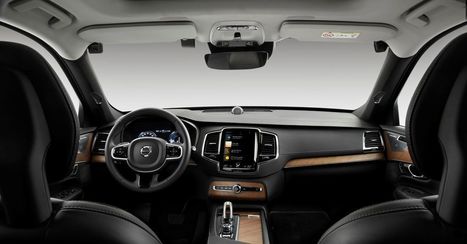
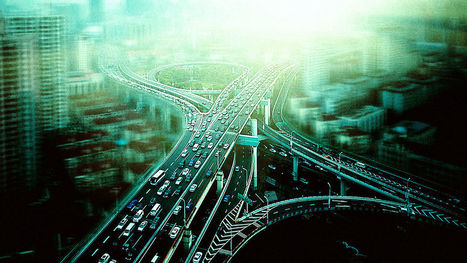


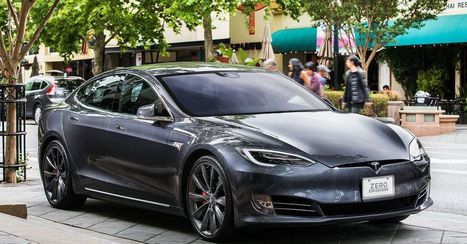
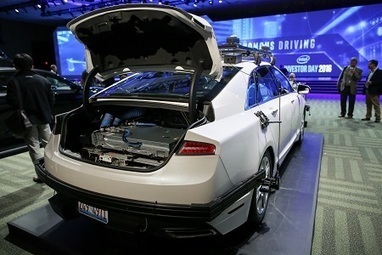

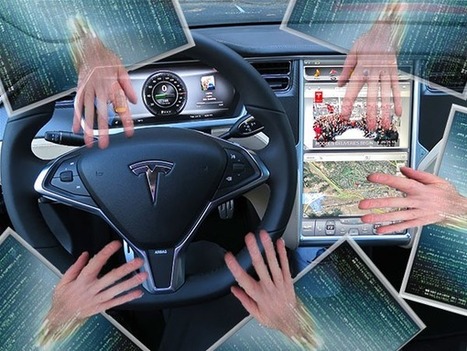
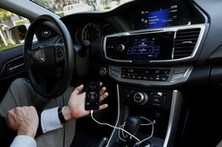





Apple a fait l'impasse sur l'ensemble des constructeurs automobiles européens, et il serait intéressant de comprendre pour quelles raisons.
Pendant ce temps, Kia mérite de plus en plus son slogan "The Power to Surprise" !